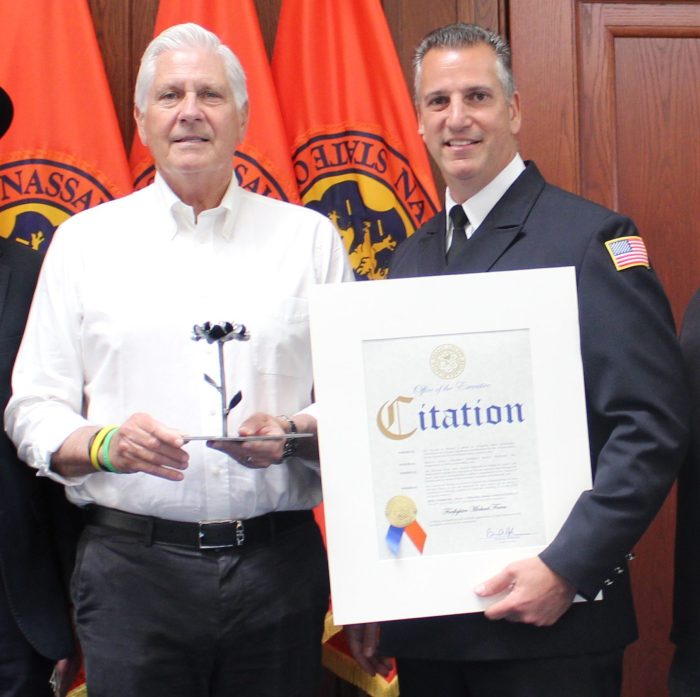My Top 10 List of Successful American Presidencies
I once wrote that I did not like the idea of “President’s Day” supplanting Washington and Lincoln’s birthdays because it was an equal opportunity program for presidents who were not equal. So this week, I thought I might have a little fun by listing the 10 most successful presidencies. I use the word ‘successful’ because I do not think there were 10 great presidencies in American history. In fact, I doubt there were even seven or eight. Being President of the United States, after all, is an impossible job.
Rating presidents is nothing new of course. In 1948, Arthur M. Schlesinger Sr. surveyed 75 historians denominating the presidents in various categories, “Great, Near Great, Average, Below Average,” etc. Since then it has become a kind of parlor game but there is also a serious and didactic aspect to it in terms of understanding leadership qualities. Being a history buff, I have read a great deal on the subject but my views are not by any means final. If I wrote this article a month earlier or a month later the order might be slightly different. Indeed, even as I write this I wrestle with the order although I feel more comfortable with the first five than I do with the latter five.
Nevertheless, a couple of points on my selections: First, there are some Presidents who had truly great first terms and awful second ones. Thomas Jefferson and Andrew Jackson are examples of presidents who had monumental first terms but each left office leaving the country in dire economic straits. So although they used to be on my list they now just miss out. Secondly, many of our presidents were great Americans but not necessarily great chief executives. This category would include John Adams and his son John Quincy Adams, the aforementioned Thomas Jefferson and the Father of our Constitution, James Madison. Interestingly, these four individuals combined had as large a cerebral capacity as any other four public officials, regardless of office, you can name and yet each fell short (a couple by vast margins) of presidential greatness.
Finally, there is the ideological bias to contend with. Schlesinger himself acknowledged that most of the historians were men of the political left and to some degree that colored their choices. I’m right of center so I have the same liability, though this would only affect modern selections as it mirrors the great debate over the Federal Government’s role in society that continues unabated today. Major scandals are a disqualifier; with that rule in place I will do my best to be non-partisan and follow the prescription of the great historian Henry Adams, grandson and great grandson of two presidents who said, “a great American President resembles a commander of a ship at sea. He must have a helm to grasp, a course to steer, a port to seek.” With that in mind here are my choices given in descending order followed by capsules of varying lengths explaining why:
10. John F. Kennedy: The era of Camelot started poorly and ended tragically but in between its alpha and omega were glimpses of glory. It started with the disastrous 1961 invasion of Cuba at the Bay of Pigs and his shallow and amateurish performance at the Vienna summit when Nikita Khrushchev slapped him around like a daddy would his unruly kid —- a performance that probably gave the Soviet leader the gumption to put missiles in Cuba. By then Kennedy had grown up some. With diplomatic tact and firmness he faced down the Soviet Bear during 13 terrifying days in September of 1962. Meanwhile, he moved the nation, especially the young, with soaring rhetoric about American potential, our commitment to freedom around the world, the race to the moon and the Peace Corps. Ultimately, he signed a limited nuclear test ban treaty and though politically cautious, took the side of the black minority (not an easy thing in a Democracy) by ordering federal troops to end anti-black rioting at the University of Mississippi. He was fervently anti-communist and committed troops to Southeast Asia, a conflict I believe he would have been far more decisive in fighting than his successor. Because of his early failures and truncated tenure, the number 10 slot is indeed generous. But he was charismatic, could reach the high notes of political oratory and captivate you with his wit and charm at press conferences. His across the board tax cuts (unusual for a Democrat) set the economy on fire. He was the first presidential candidate my mother ever voted for. He was the first president I can remember, though barely —I will never forget that terrible day he died. So it’s a sentimental choice but, I guess, I’m a sentimental guy.
9. Rutherford B. Hayes: A surprise, even for me. Inheriting a weakened presidency after Reconstruction and a weakened economy after the Panic of 1873 he increased executive independence, lifted the country out of depression by holding fast to his belief of hard money, resisted labor union demands to inflate the currency, correctly maintained that coinage of silver would vitiate the national credit. He initiated Civil Service reform and effectively used the army to put down violent railroad strikes to protect the public interest. His iron was tempered by a humanitarian outlook that sought to help minorities, vetoing a bill to restrict Chinese immigration by recalling our experience in dealing with the weaker races — the Negroes and Indians. He fought on behalf of the Indians, he fought for industrial and general education, land allotments and citizenship, albeit not very successfully. He reassured a war torn South of his good intentions. Surprisingly, he decided not to run for re-election. Not a great presidency but a solid and respectable one.
8. James K. Polk: Because he accomplished everything he said he would. He passed a tariff acceptable to both North and South during a period of sky-high tensions; instilled order into a chaotic financial system by establishing an independent treasury; settled the Oregon territory boundary with England; acquired California and the Southwest while keeping Texas in the United States. These last two enormously increased the size of the United States making it a continental power and essentially established the map of our nation as we know it. He fought a controversial war with Mexico to do it, one that was condemned by a young congressman named Abraham Lincoln as a war of aggression and another future president, Ulysses S. Grant, as the price we paid for the Civil War. Mexico, however, has always been repressive so it is unlikely that the cause of liberty could have been advanced by their suzerainty of California, Texas and the Southwest. That never materialized because Polk proved a superb Commander in Chief and Mexico was decisively defeated. Curiously, perhaps because of something lacking in his personality, Polk never translated this great victory into personal popularity and he left a one-term president.
7. Dwight D. Eisenhower: They said his smile was his political philosophy. I Like Ike was the political slogan of the time and how could you not. He broke the stalemate in the Korean War forcing the North Koreans to agree to the 38th parallel boundary and by placing American forces permanently, preventing a Yalta-like sellout of Eastern Europe. He then kept the peace throughout the entire decade. He resisted heavy pressure from military men for a pre-emptive strike against the Soviet Union before, they argued, the Soviets acquired long range delivery systems to attack the U.S. with nuclear weapons. Instead he orchestrated the first Superpower conference in Geneva. He was a realist knowing that he would overextend American power to aid Hungary in its revolt against the Soviet Union because it lay so deep within Eastern Europe, though he condemned the Soviet’s brutal tactics in suppressing freedom. He was also a realist on the domestic front, understanding that popular New Deal programs like Social Security and unemployment insurance were here to stay. But he was a tough fiscal watchdog, restraining spending where he could, including the Pentagon (no one understood the Pentagon more than General Eisenhower) balancing the budget, marginalizing Joseph McCarthy and building the Interstate Highway System that linked major U.S. cities, further integrating our economy. His farewell address warning about a military industrial complex was the most compelling since George Washington’s. An astute politician, along with being a wise military man Eisenhower was, as his biographer, liberal historian Stephen Ambrose concluded, the best of men.
To be continued…
































